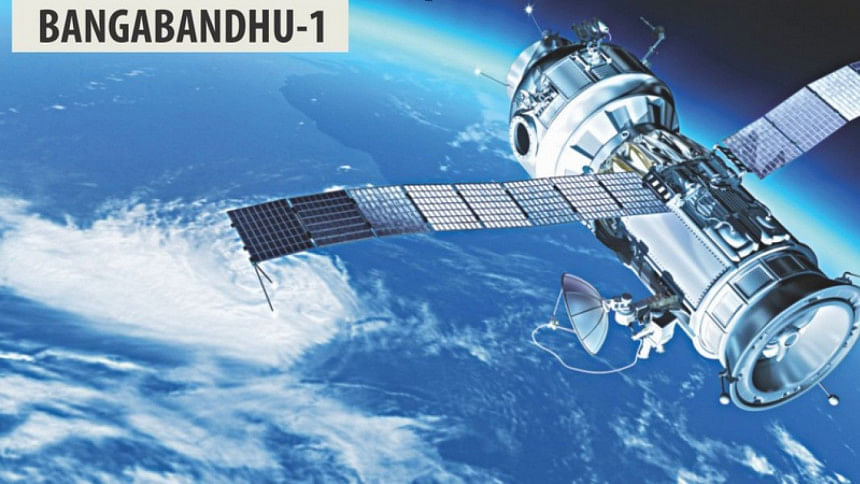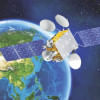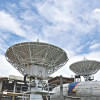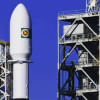Ground gets signals from Bangabandhu-1

Banghabandhu-1 is getting closer to its orbit slot at 119.1 degree east and it is on Launch and Early Orbit Phase (LEOP), said officials concerned.
After the successful launch at 2:14am yesterday Bangladesh time from Cape Canaveral, Florida, the satellite travelled about 35,700 kilometres from the launch pad as of yesterday evening, said Md Mezbahuzzaman, project director of the Bangabandhu-1 satellite project.
“Already, the space ship has started sending signals to the ground stations and it will take another seven to nine days for it to open its wings completely and activate the battery and other equipment,” he told The Daily Star.
About 45 minutes after launch, the satellite started sending signals to the SpaceX's three ground stations in the US, Italy, and South Korea, said Mezbahuzzaman.
After the successful launch of the 3.7-tonne satellite, Prime Minister Sheikh Hasina yesterday said another milestone has been reached, reports UNB.
Greeting the country's people, she said, “Today, we launched Bangabandhu Satellite-1. With this launching, we've hoisted the Bangladesh flag in space. I would like to greet and congratulate the people of the country on this glorious occasion.”
“The satellite will be a great addition to our Information Technology heralding our entry into the Satellite Club of the world,” she said, adding, “The Bangabandhu Satellite-1 will certainly bring revolutionary changes in our broadcast and telecommunications sector.”
Prime Minister's ICT Affairs Adviser Sajeeb Wazed Joy along with top officials of the government were watching the launch from about 2.5km away from the launch pad.
Mezbahuzzaman said, “Now the process will be very slow and in phases the satellite will start its activity to complete the LEOP and the second phase is Satellite in Orbit.”
The LEOP phase will take 10 days while the second one will take 20 days.
Talking about the benefits of the Tk 2,765.66 crore satellite, project officials said it would immensely contribute to the digital advancement of the country. It would mostly cover South Asian countries and Indonesia, the Philippines, Myanmar, Tajikistan, Kyrgyzstan, Uzbekistan, Turkestan and a part of Kazakhstan.
Renting out broadcasting capacity will be one of the main purpose of the satellite as Bangladesh currently meets its demand for satellite connectivity renting from foreign operators spending about $14 million a year.
Bangabandhu-1 could save the foreign currency and its unused capacity could also be rented to other nations.
However, over the last few months, a number of local TV channels have expressed their reservations that Bangabandhu-1 would be far out in the east and it might not be suitable for them.
State-owned Bangladesh Communication Satellite Company Ltd would operate the business of the Bangabandhu-1.
Zunaid Ahmed Palak, state minister for ICT, who witnessed the launch in Florida, said according to their plan, most of the capacity would be used in the country.
There are more than 750 union parishads in the country with no internet connectivity and we want to ensure broadband internet with this satellite there. It could provide the nation with dedicated emergency telecommunication services during natural disasters if all other services go offline, said officials.
However, MA Hakim, president of Internet Service Providers Association of Bangladesh, said the satellite's bandwidth would be more than 100 times costlier and that was why they would not be interested.
“For about 1 Mbps bandwidth transfer from Dhaka to Jessore, we need to spend about Tk 1,500. But with satellite, it will be more than $2,000.”

 For all latest news, follow The Daily Star's Google News channel.
For all latest news, follow The Daily Star's Google News channel. 







Comments